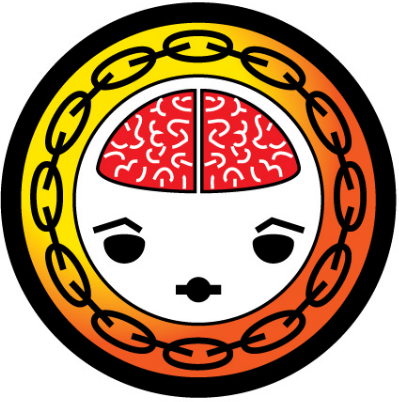The Times They Are A-Changin’
Come gather ’round people
Wherever you roam
And admit that the waters
Around you have grown
And accept it that soon
You’ll be drenched to the bone
If your time to you
Is worth savin’
Then you better start swimmin’
Or you’ll sink like a stone
For the times they are a-changing
Bob Dylan, 1963
Remember this song? I sang it with a tambourine in my hand in the ’60s while swaying back and forth wearing frayed bell-bottom jeans, well-worn sandals and a flowered t-shirt. As a child of the ’60s I joined the chorus to usher in change. Now in my sixties, I want to do it again. My focus in this post is to highlight changes in supply chain analytics, and what this can mean for your business.
Today, if you ask a supply chain leader about analytics their response is all about reporting. If you ask an IT professional about analytics, their response is also usually centered in reporting. The terms supply chain and analytics mean very different things to different constituents within the organization, but my point of view is that investment in analytics can make the difference in supply chain performance. I think that it will define leaders. I also believe supply chain analytics is defined too narrowly by most IT and supply chain professionals. We are at an inflection point: a tipping point of change that I think is significant.
When I use the term analytics, I am using it broadly to define technologies that can sense and drive an intelligent response. I see it as the systematic computational analysis of data. For me it is about much more than traditional statistics and reporting. In my world view, it includes processes like data discovery, test and learn, cognitive learning, visualization and listening through unstructured text mining. While we have built traditional technologies on relational databases and asked smart industrial engineering students to build algorithms using structured data to improve decisions, I think that these times are over. In Table 1, I chart what I see as important market shifts.
Table 1. The Changing World of Supply Chain Analytics

Take time to think about the implications of these shifts. Write a list of the unstructured data that surrounds you that is not used –maps, weather, ratings/reviews, quality data, pictures, customer sentiment data, email, documents–and think of the power of combining structured and unstructured data to drive new outcomes. These impacts are profound.
My predictions:
1) Redefinition of the Market and Business Applications. Today’s software taxonomies of SCM, CRM, PLM and SRM are dead. It is no longer about the automation of traditional silos within the organization. Instead, it is about powering digital business outside-in from the customer back. With the traditional software taxonomies in chaos, a new set of innovative vendors is emerging. I find this exciting.
Take-away: Throw away your traditional definitions of software. Define architectures outside-in, from the customer back, and don’t limit your thinking using traditional paradigms.
2) Shift in Strategic Partners. In this new world, I think that SAP fails and then succeeds. (I think that this will take 4-5 years.) I also believe that Oracle and IBM fail and move into new business models.
Note that this week SAP announced a major shift in IT architecture; however, I think that it is too little, too late. SAP lacks business visionaries that can apply new technologies to business problems. Hasso and Bill have many of the right words in the launch of SAP Business Suite 4 SAP HANA, but the announcement is about the automation of a more traditional architecture that is dependent on ERP. Because of the gap in functionality, and the failure of the Ariba acquisition and SAP APO to deliver on the business promise for supply chain, supply chain leaders have lost patience.
Companies need solutions that work quickly and are easy to use. This new world is no longer about selling to the CIO. It is about cloud-based deployments to business leaders. I believe that the SAP, Oracle, and IBM of today will become legendary case studies taught in business schools in the books with those of Xerox, Kodak, and Polaroid. A portfolio of stories of failed innovation… I think that the stalwart IT providers from the last decade will struggle to make the shift to embrace digital business. I think the heart of digital business will be decision support cloud-based solutions to sense and adapt value networks. I think this is the new world of supply chain analytics.
Take-away: The belief in a strategic software partner is no longer viable. The traditional strategic vendors have not moved at the speed of technologies or the requirements of the business. The dream of effective decision support as an extension of ERP has failed. I predict in the next five years that Amazon will emerge in strategic importance and SAP will decrease in importance. Traditional maintenance costs are holding many companies hostage.
3) We Are Five Years Away from Supply Chains That Can Learn and Adapt While We Sleep. Decision support technologies are changing. It is a combination of optimization and artificial intelligence. I feel that it will redefine master data management, supply chain visibility, and value chain workflows. It will also help us to close the gap on finding and training supply chain talent.
Take-away: Build a team to invest time in learning the new approaches outlined in Table 1. Spend time to learn about Hadoop, rules-based ontologies, and listening engines. The good news is that these technologies are small, iterative deployments that can easily be handled by cross-functional teams in the supply chain center of excellence. Set aside funds in the 2015 budget for line-of-business investment to test and trial new technologies. Build a team of naturally curious business leaders to harness insights from new approaches.
Want to know more? Join us for our big data and analytics webinar next week on February 12th at 11:00 a.m. to hear a panel of experts–Dave Shuman from Cloudera to discuss Hadoop and non-relational architectures; Steve De’Angelis from Enterra Solutions to discuss combinatorial math and cognitive learning; and Sean Riley from Software AG to speak about streaming data and platforms to support the Internet of Things. We also look forward to seeing you at the Supply Chain Insights Global Summit where we will showcase case studies to help companies internalize these shifts and power new results.
What do you think? I would love to hear from you.







